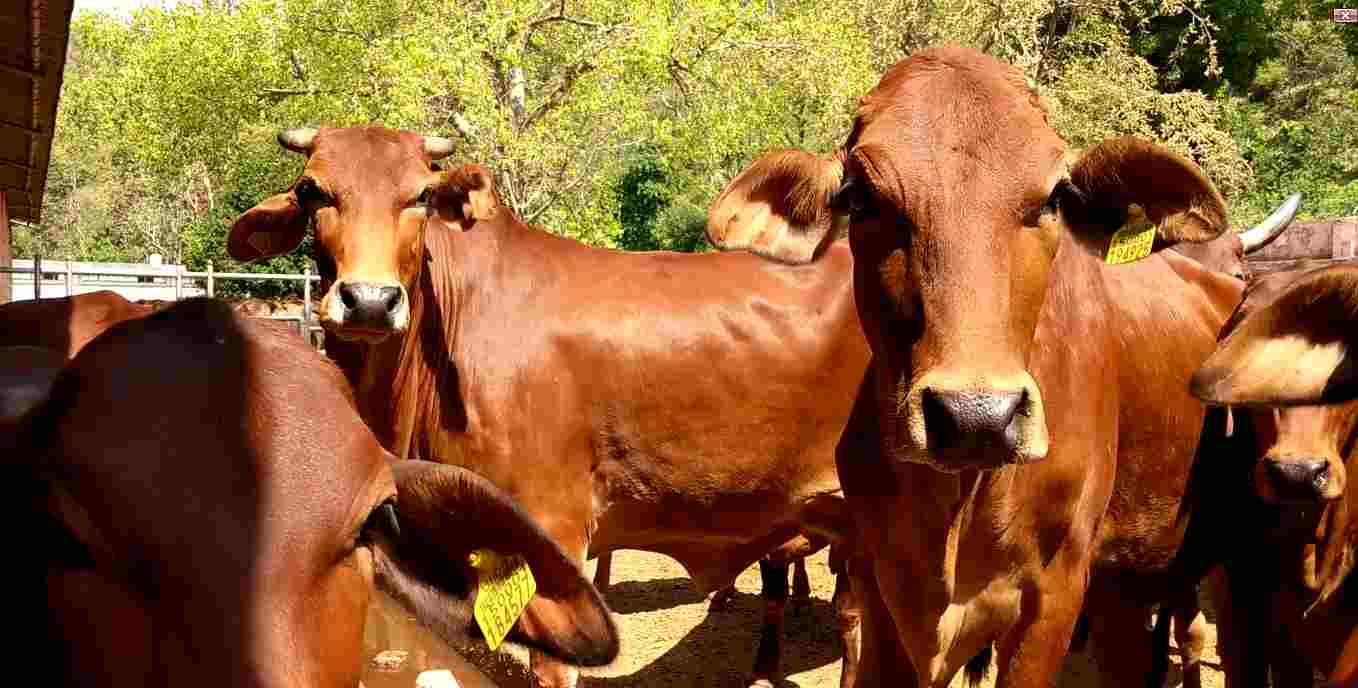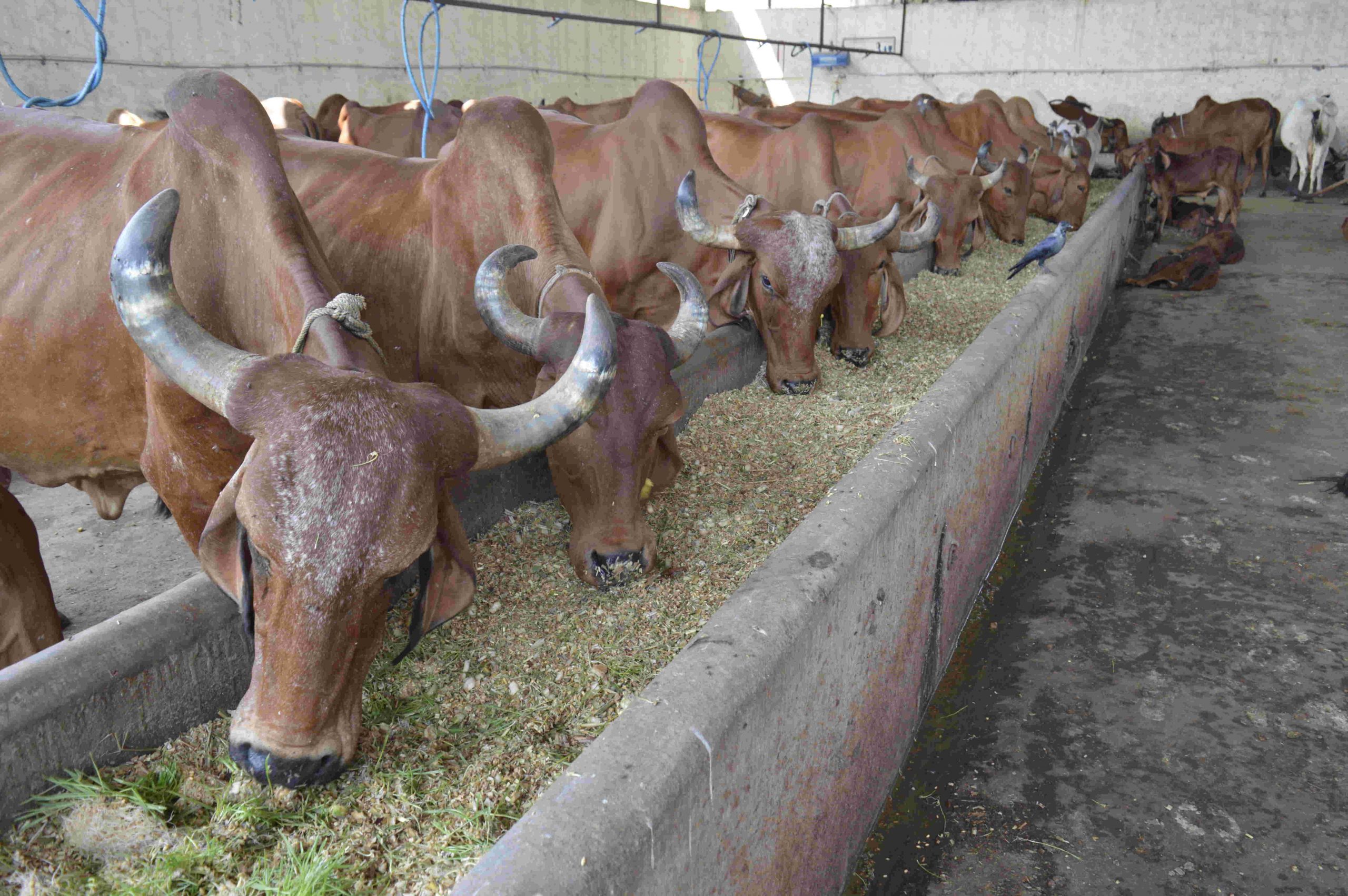Drinking milk may be risky because of increased cases of bovine cancer, warn scientists
The scientists at the Lala Lajpat Rai University of Veterinary and Animal Sciences believe drinking milk from a cancer-afflicted animal may increase one’s cancer risk if the milk isn’t boiled well


Lucknow
“My cow had been long banging its head against the peg. We couldn’t understand in the beginning. It was only when we got it examined by a doctor that we came to know that it suffers from cancer. Previously, the entire household drank its milk, but now she remains tied to a corner,” Chandrakala Shukla, who lives in Allipur village in Uttar Pradesh’s Sitapur district.
Her cow was diagnosed with brain cancer last month. She had this single cow that was yielding about three litres of milk. Previously, this milk was consumed by her family, but now she buys milk from the market as diseases like cancer are not only restricted to human beings but also have begun affecting many animals, including bovine. Drinking the milk of the affected animals can be hazardous for humans.
Chandrakala’s cow is not the only animal falling prey to cancer. The Lala Lajpat Rai University of Veterinary and Animal Sciences (LUVAS), Hisar has compiled a database with the help of the ultrasounds of the animals sent there for treatment which has highlighted the cases of cancer in milch animals. Most of these cases pertain to uterine cancer.
Boil milk well before consuming
The scientists at the LUVAS believe that drinking milk from a cancer-afflicted animal may increase one’s cancer risk if the milk isn’t boiled well. They say that boiling the milk well kills its cancer-causing elements.

Most cases are of cancer affecting the uterus and udders
Dr RK Chandolia, an animal scientist from the Gynecology Department of LUVAS, said: “We have, so far, received more than 20 cases of cancer, including cow as well as buffalo. Our team has been engaged since long in investigating cancer among the milch animals. Out of all the animals which had been brought for an investigation to us, a few had tumors in udder and uterine regions.” It is common in milch animals to develop such lumps in their udders, but if left unchecked, they may further turn cancerous, pretty much like humans.
He added: “Those animals which had uterine cancer were treated by removal of the uterus. Cancer, not only uterine but also that of kidney, udders, urine and skin, is reported among milch animals.”
Timely diagnosis must
There has been a tremendous development in the field of animal sciences abroad. Besides, they have better medical facilities, due to which, timely diagnosis for cancer can be made. The Indian Veterinary Research Institute’s (IVRI) chief scientist Dr Amar Pal said: “Not only cancer but also several diseases of animals can be effectively cured with timely detection. Due to the lack of multi-specialty hospitals at the district level, the doctors are unable to provide a correct diagnosis. We still provide treatment based upon the symptoms.

India has limited testing facilities
In order to provide better treatment to the animals, the IVRI, Bareilly, has opened the first multi-speciality hospital for animals in North India. The hospital provides facilities such as separate operation theatres for small and big animals, minor OT, delivery room, X-ray, ultrasound, CT scan, testing laboratory, endoscopy, dialysis unit and seminar room. The hospital also has an ICU facility. If such multispecialty hospitals are opened across India, many serious ailments of animals can be cured thereby saving their lives.
Dr Amar Pal said: “A farmer doesn’t have such amount of money that he can take his animal to a distant multispecialty hospital. If the government operates such hospitals at the district level then only the animals will get timely testing and diagnosis, facilitating proper treatment.”
Plastic also one of the causes of cancer
Besides delay in proper treatment, certain scientists also attribute cancer to plastic. In 2018, Nature Science Initiative’s survey found that plastic traces found in the milk, dung and urine samples of cow-buffaloes are hazardous not only for the human beings but also for the animals in which they promote cancer. The survey had established a link between the polythene and bovine cancer.
80% of stray cows had plastic traces
Research associate, Saumya Prasad, who had been involved in the survey by Nature Science Initiative informed, “Along with the environment, plastic also has been creating problems for the animals’ health. It is very difficult for the animals to digest plastic and the chemicals from plastic promote infection among animals. This infection leads to several ailments which can even cause death. As per several reports on plastic, 80% of the stray cows have plastic traces.”
As per Uttar Pradesh’s state veterinary department and animal welfare organization, about 100 cows die annually in Uttar Pradesh’s capital Lucknow due to plastic. The incidents of animal death due to plastic consumption have been reported from many states, but Uttar Pradesh and Rajasthan top the list.

